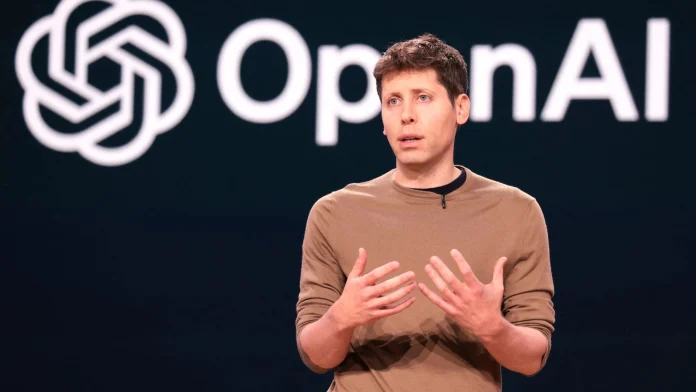In a significant move for India’s artificial intelligence (AI) landscape, OpenAI CEO Sam Altman recently met with India’s IT Minister, Ashwini Vaishnaw, to explore opportunities for building a cost-effective AI ecosystem. This discussion could pave the way for India to become a global AI powerhouse by focusing on affordability and accessibility.
In This Article:
As AI technology continues to shape industries worldwide, India is positioning itself as a key player in the global AI race. With a growing talent pool and expanding digital infrastructure, India’s AI sector holds immense potential. However, the high costs of computing power, research, and implementation have been major hurdles. A strategic partnership between OpenAI and the Indian government could offer solutions to these challenges, ensuring that AI innovation reaches all corners of the nation.
A Comprehensive AI Stack for India
According to Vaishnaw’s social media post, the discussion centered around developing a robust AI stack that includes:
- GPUs (Graphics Processing Units): The hardware backbone necessary for AI computations.
- AI Models: Advanced algorithms and frameworks powering AI applications.
- Applications: Real-world implementations of AI across industries like healthcare, finance, and e-commerce.
OpenAI has expressed a strong interest in collaborating with India across all three aspects, marking a significant milestone in India’s AI journey. By focusing on developing a low-cost AI ecosystem, this collaboration could significantly impact businesses, startups, and enterprises looking to integrate AI solutions into their operations.
Why This Matters for India’s AI Growth
India has emerged as a global tech hub, with its vast talent pool and growing digital infrastructure. However, AI adoption has been hindered by high costs associated with computing power, research, and implementation. A partnership with OpenAI could address these challenges, making AI development more affordable and widely accessible.
Potential benefits include:
- Boosting AI Research: Increased access to AI models can accelerate innovation in machine learning and deep learning.
- Economic Growth: AI-driven solutions can improve efficiency in various sectors, driving GDP growth.
- Job Creation: As AI adoption expands, new roles will emerge, requiring skilled professionals in AI and data science.
- Improved Digital Infrastructure: A focus on AI development can encourage better infrastructure, including data centers and cloud computing solutions.
- Advancements in Healthcare: AI-powered medical diagnostics and patient care solutions can significantly improve healthcare outcomes in India.
The impact of AI extends beyond businesses and economic growth. AI-driven solutions can transform industries like education, agriculture, and government services, leading to better decision-making and automation.
The Role of Government in AI Expansion
India’s government has shown a proactive stance in AI development, with initiatives like:
- Digital India: A push towards digital transformation across the country.
- AI for All: A mission to democratize AI usage.
- PLI Schemes for Electronics Manufacturing: Incentives for local production of AI-related hardware.
- National AI Strategy: A structured approach to AI research and development.
- Start-up India: Encouraging AI-driven startups to contribute to economic and technological advancements.
A collaboration with OpenAI could further align with these initiatives, ensuring that India remains competitive in the global AI race. By developing an AI ecosystem with cost-effective solutions, India could emerge as a leader in AI innovation, benefiting both local enterprises and multinational corporations.
Addressing Challenges and Future Prospects
While the idea of a low-cost AI ecosystem is promising, several challenges need to be addressed:
- Infrastructure Development: Establishing AI research hubs and data centers.
- Skilled Workforce: Training professionals in AI, machine learning, and data science.
- Data Privacy and Security: Implementing regulations to protect data integrity.
- Collaboration Between Industry and Academia: Encouraging research institutions and businesses to work together.
- Global Competitiveness: Ensuring that India remains on par with AI advancements in other countries.
Despite these challenges, the prospects for AI in India remain strong. A successful collaboration between OpenAI and the Indian government could revolutionize AI adoption, making it accessible and affordable for businesses of all sizes.
A Game-Changer for India’s AI Future
The meeting between Sam Altman and Ashwini Vaishnaw highlights India’s ambition to be at the forefront of AI innovation. By focusing on a low-cost AI ecosystem, India can unlock new opportunities for businesses, researchers, and entrepreneurs. As this collaboration unfolds, it could redefine how AI is developed and deployed in emerging economies.
With AI playing a pivotal role in shaping the future, India’s commitment to an affordable AI infrastructure could serve as a model for other nations looking to embrace technological advancements without prohibitive costs. If implemented successfully, this initiative could position India as a leading AI hub, attracting investments, fostering innovation, and improving economic productivity.
ALSO READ – Impact of USAID Funds Freeze on India’s Health and Education Sectors




